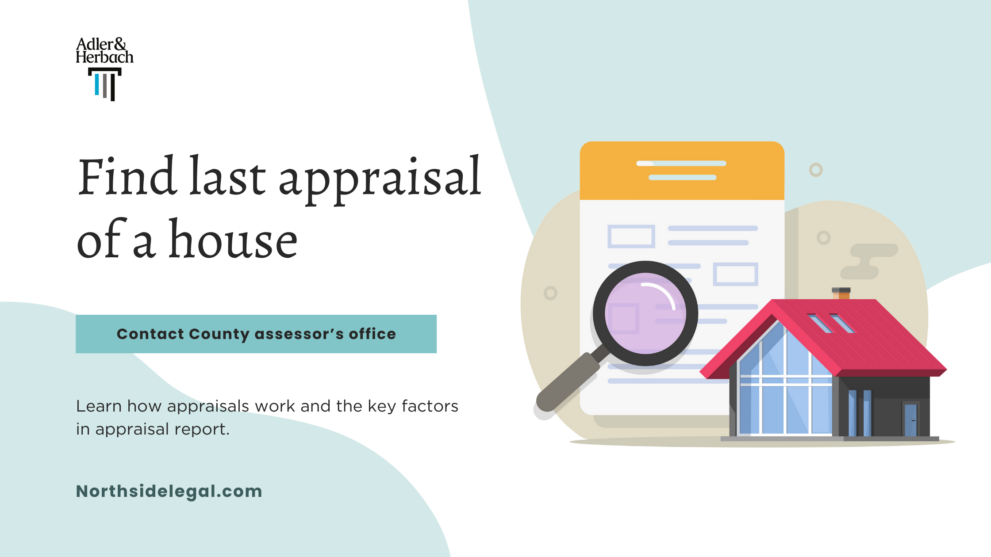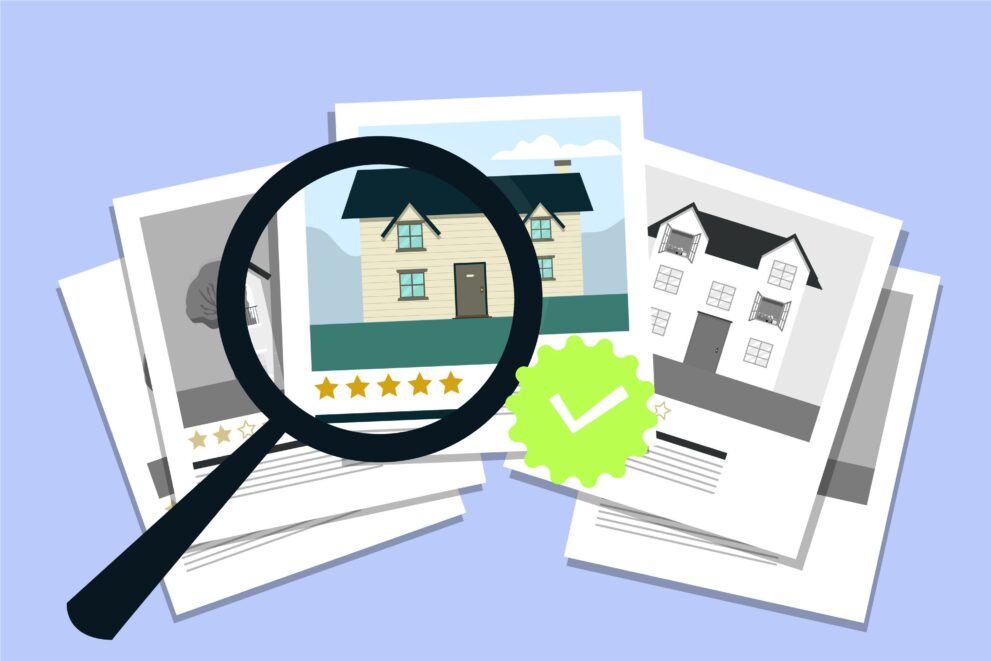If you are considering purchasing a residential property in Illinois, researching and reviewing the home’s most recent appraisal details can provide useful insights when determining your offer price. But how do you find the latest appraisal completed on a house in Illinois?
How do I find the last appraisal of a house?
To find the last appraisal of a house, you can contact the county assessor’s office, search county websites for property records, ask the listing agent or request information from the seller. Alternatively, you can hire an appraiser or use appraisal data services like CoreLogic.

1. Ask the County Assessor’s Office
In Illinois, each county has a county assessor’s office that maintains a property record for each parcel of land. This record contains details on the property’s assessed value and how it was determined.
Contact the assessor’s office for the county where the property is located to request a copy of the property record. This can provide insight into the valuation conclusions for tax assessment purposes.
Keep in mind that the county assessed value will frequently vary greatly from that of a private appraisal done in connection with your loan application.
2. Search County Websites
Many county assessor’s offices in Illinois provide an online searchable database to look up property records.
For example, Cook County has an Assessor’s Office website where you can search for a property by address to find assessment details. While not a full appraisal, this information can give you an idea of the property’s value for tax purposes.
3. Ask the Listing Agent
The real estate agent listing the home may have access to summarized appraisal data from a recent appraisal done within the past few years, even if they cannot provide the full report.
Ask the listing agent to share any high-level value estimates from past appraisals to better understand professional valuations completed on the property.
4. Request from the Seller
As the current homeowner, the seller may have copies of any appraisals done for them in recent years, or from their purchase of the home.
Ask the seller to provide you with copies of the most recent appraisal report to get an unbiased estimate of value and learn more about the property’s features. Many sellers will share this, if available, to help facilitate a sale.
5. Hire an Appraiser
As the buyer, you can always pay to have your own appraiser value the property prior to making an offer.
While an added $450 to $650 expense, this allows you to get your own detailed, independent appraisal on the property to inform negotiations. Find an appraiser through the Illinois Department of Financial and Professional Regulation or Illinois REALTORS.
6. Check Appraisal Data Services
Companies like CoreLogic provide real estate data like automated valuation models and appraisal history reports for a subscription fee. While not cheap for an individual, they give access to proprietary information and tools.
How do Appraisals work in Illinois?
In Illinois, county assessors’ offices use mass appraisal techniques to estimate property values based on location, square footage, age, and features. This differs from lenders requiring appraisals done for financing, which use sales of comparable properties. Home appraisal costs in Illinois range from $450 to $650 for single-family homes.
Key Factors in an Appraisal Report
While buyers may not get the full appraisal report, key details they aim to uncover include:
- Date of the appraisal
- Appraised value conclusion
- Comparable properties used
- Square footage
- Condition ratings
- Features of the home
- Any repairs needed
- Neighborhood description
This information helps buyers determine a competitive offer price grounded in professional valuations.
Buyers can use the recent sales prices of comparable properties in the appraisal to gauge what price is fair and supported for the property. Knowing the appraiser’s assessed condition can alert buyers to any deficiencies they should factor in or request repairs for.

Full Appraisal vs. County Assessor’s Assessed Value
County Assessors rely more on mass appraisal formulas versus appraisers visiting the property. Assessed values also lag behind real estate market shifts.
The assessed value is often lower than a property’s true market value determined by an appraiser, so buyers should take it as a baseline versus a conclusive indicator.
Why do Recent Appraisals Matter?
Reviewing a recent appraisal helps buyers in several key ways:
- Establish a baseline for an offer price grounded in professional valuation conclusions.
- Detect any condition or repair issues documented by the appraiser that they should consider or address.
- Understand what amenities or features impact the property’s value based on the comparables analysis.
- Identify any negative factors about the property or neighborhood noted in the report.
- Gauge how much competition or interest a property at that price may receive.
While not required, informed buyers have an advantage in negotiations when they understand the property’s most recent appraised value and the details behind how it was determined.
Difficulties in Obtaining Last Appraisal of a House
Buyers should keep in mind that access and visibility into appraisals can vary significantly:
- Full appraisal reports may not be shared by real estate agents or sellers.
- Public records provide assessed value data, not comprehensive appraisals.
- Appraisers may only summarize conclusions for buyers not paying for the full report.
- The property may not have been appraised recently.
- Privately ordered appraisals can be expensive for buyers.

So while having the most recent appraisal details significantly assists buyers, there are roadblocks to obtaining the actual full reports.
Buyers may need to rely on summaries from the listing agent, requesting sellers disclose an executive summary, or only use assessed values as general guidance during negotiations.
Learn more about how long the appraisal takes, what an appraisal costs, and when the appraisal is ordered in the loan process.
In Summary
The buyer’s best path to success is utilizing every available avenue at your disposal:
- Search county property records online for assessed details.
- Ask the listing agent to disclose their knowledge of recent appraised values.
- Request a property value estimate from the seller.
- Order your own appraisal if highly interested in the property.
- Research sales of nearby comparable homes.
Combining these strategies allows buyers to make offers competitive with professional valuations, despite potential difficulties obtaining the full appraisal reports.
Patience and diligence in gathering data can pay off for buyers able to negotiate from an informed position.


